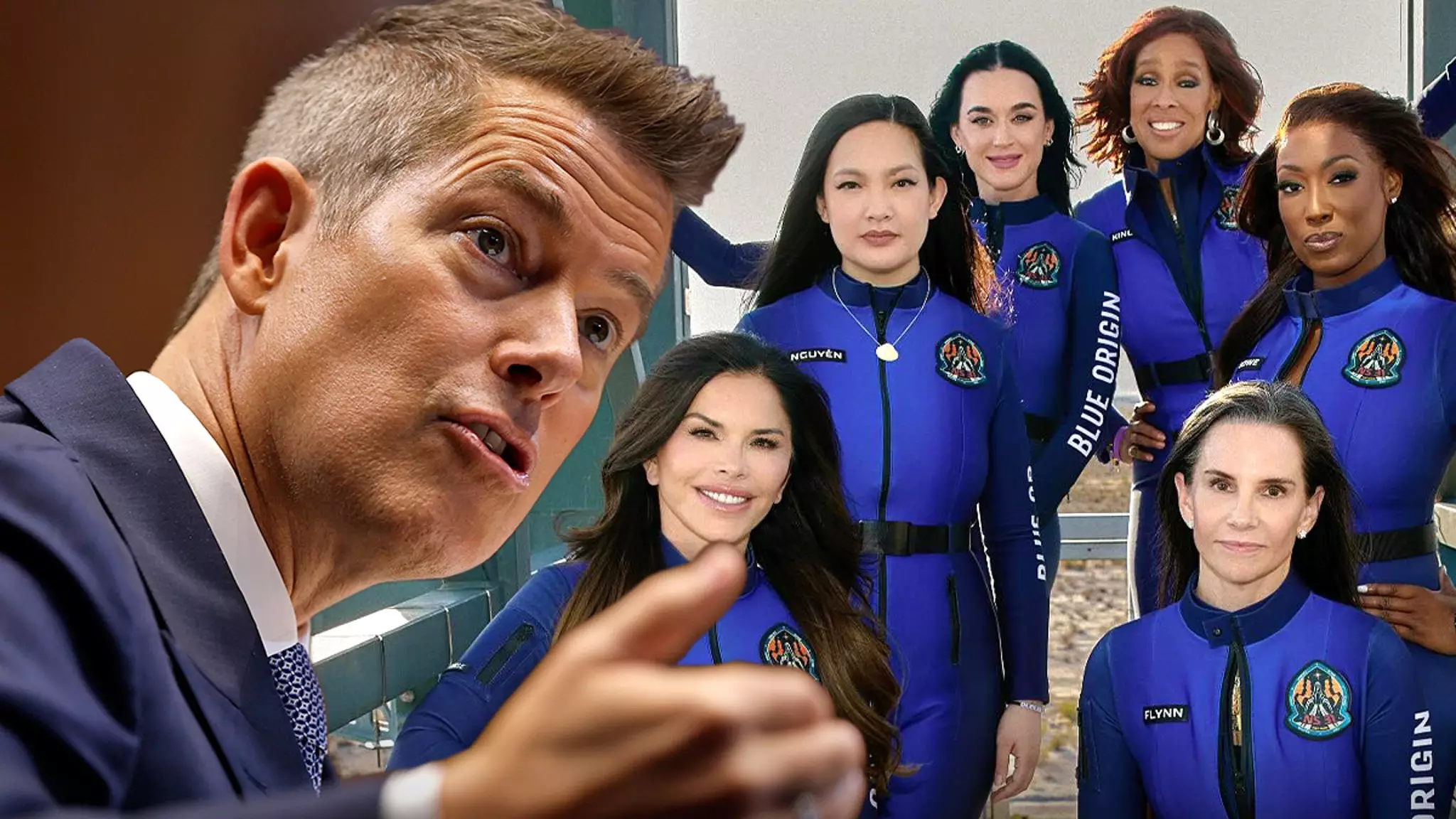In the recent spectacular journey to the outer fringes of Earth’s atmosphere, a well-publicized flight by a group of high-profile women, including Katy Perry and others, ignited much debate within both media and public discourse. While they launched into space aboard Blue Origin’s spacecraft for 11 exhilarating minutes, the claims of their astronaut status sparked controversy. As the spectacle unfolded, it became clear that we were watching not just a space flight, but a nuanced interplay of celebrity culture, privilege, and public perception—layers that speak volumes about contemporary values and aspirations.
The Defining Line of Astronaut Status
U.S. Transportation Secretary Sean Duffy’s remarks about the group not qualifying as astronauts according to the Federal Aviation Administration (FAA) guidelines punctuated this event with an unsettling reminder of bureaucratic definitions that govern extraordinary experiences. The distinction that Duffy highlighted serves to clarify a crucial point: while the flight traversed the boundary of space at 62 miles, none of the participants engaged in “essential” safety activities during the flight. This raises significant questions: What does it mean to be an astronaut? Is it merely about crossing a certain altitude, or does it require active participation in the mission’s safety?
The 2021 updates to the FAA’s Commercial Space Astronaut Wings Program underscore a shifting paradigm. As space travel evolves from exclusive government endeavors to commercial ventures, we find ourselves grappling with issues of validation versus experience. The FAA’s stringent requirements may well serve as necessary safeguards, but they can also seem out of touch with the spirit of exploration that such private endeavors symbolize.
Cultural Backlash and Environmental Concerns
The backlash against this flight, deemed by some as a “gluttonous waste,” reveals deeper societal anxieties surrounding wealth, privilege, and the moral implications of space tourism. When celebrities frolic in space while many struggle with basic necessities, public resentment inevitably follows. Notably, comments from actress Emily Ratajkowski—who criticized the trip as “disgusting”—echo the sentiments of a population weary of witnessing extreme wealth concentrated in ventures that seem frivolous at best.
Olivia Munn’s critique about the expensive trip coming at a time when “Americans can’t even afford eggs” lends further credence to the argument that such escapades risk alienating everyday people. The juxtaposition of elite space adventures against the backdrop of economic challenges reveals a cultural divide that deserves attention. It’s a reminder that while exploration is essential and awe-inspiring, it is crucial to consider the implications of such pursuits on earthly existence and environmental degradation—a reality that cannot be overlooked, especially in discussions surrounding sustainability.
Defending the Journey: Perspectives from the Crew
Despite the criticisms, the women involved in the flight have stood up to the backlash, expressing that their journey does not detract from solving problems on Earth. Gayle King’s defense encapsulates a tension present in emerging commercial space travel: the notion that personal ambition and joy can coexist alongside global issues. If their journey inspires a renewed interest in science, engineering, or exploration among young people, is it not a worthwhile endeavor?
Jessica Alba’s suggestion to redirect anger towards broader systemic issues—like political actions that shape wealth distribution—articulates a critical point. The issues surrounding space tourism are multifaceted, and while it’s easy to target individual celebrities, there are larger structures at play. The frenzy around celebrity space travel may serve as a distraction from engaging with those structures and advocating for economic and environmental reform.
In the age of commercial space tourism, we find ourselves at a crossroads, awash in the thrill of discovery but also grappling with pressing moral considerations. The dialogue surrounding Katy Perry, her peers, and their brief passage into space has shed light not just on individual pursuits, but on a collective responsibility to address the implications of such ventures. Space exploration can inspire hope and dreams of innovation, but it can also serve as a reflective surface for broader societal values and challenges that must be diligently examined. As we gaze into the vastness of space, we must also ensure that we remain grounded in the realities of our shared home.

